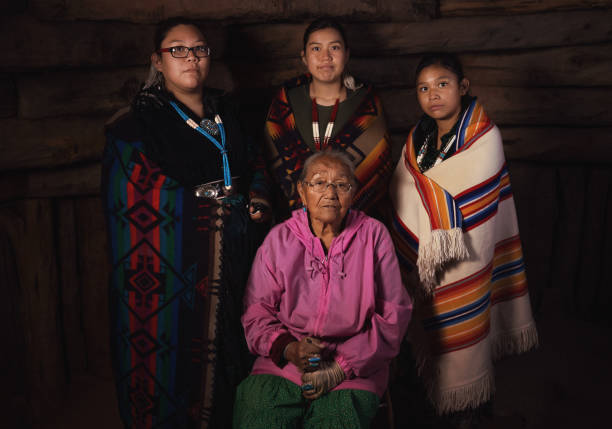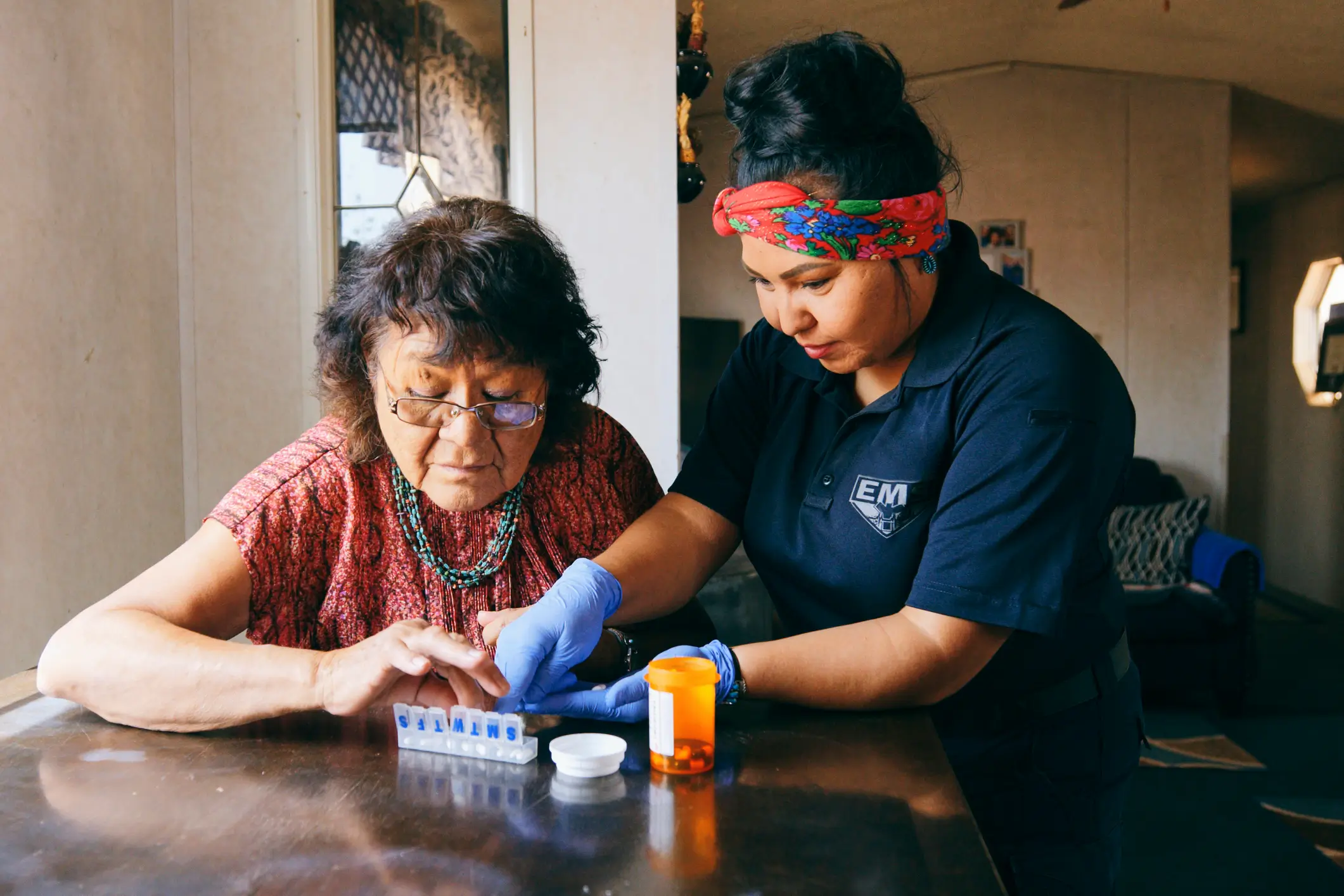Systemic exclusion of Tribes in the development of national public health infrastructure, like disease surveillance systems, contributes to the serious health inequities experienced by American Indian and Alaska Native (AI/AN) people. Data has been recognized as foundational to public health for the past century. Yet, Tribes frequently lack reliable access to public health data about their own citizens. While Tribes across the country are investing in and expanding their public health systems, without timely access to public health data, Tribes cannot adequately track the spread of disease, make data-informed decisions, identify those at high risk for severe illness or mortality, or evaluate public health interventions.
AI/AN people are simultaneously citizens of three sovereigns: the United States, their state of residence, and the Tribe in which they are enrolled. However, public health infrastructure in the United States has developed with states at the center, with strong deference to state public health authority. For public health surveillance, disease reporting is typically governed by state law and managed by state data systems. After data deidentification, certain data is also shared with CDC. In this system driven by federalism, Tribes have no clear place. Certain things, however, are abundantly clear under U.S. law. Tribal sovereignty – the inherent right or power of Tribes to govern themselves – has been repeatedly affirmed by the U.S. Supreme Court, the U.S. Constitution, and hundreds of Indian treaties and federal statutes, and, in fact, predates the existence of the United States itself. Tribal nations’ inherent sovereignty is the legal basis for the status of Tribes as public health authorities. Public health authority refers to the authority of a sovereign government to engage in public health activities as part of its official duties, to protect and promote the health of the people within its jurisdiction.
No federal law is needed to grant Tribes the authority to engage in public health activities; this authority is inherent to sovereign governments. However, federal law has recognized Tribal public health authority and, in the case of Tribal Epidemiology Centers (TECs), granted public health authority for data access. For example, the Health Insurance Portability and Accountability Act of 1996 (HIPAA) defines “public health authorities” to include state, local, and Tribal agencies and permits access to identifiable health information otherwise protected under federal law to prevent or control disease or injury. In addition, the permanent reauthorization of the Indian Health Care Improvement Act designated TECs as public health authorities for the purposes of HIPAA. IHCIA also states that the Secretary of Health and Human Services “shall grant to each epidemiology center . . . access to use of the data, data sets, monitoring systems, delivery systems, and other protected health information in the possession of the Secretary.” Tribal public health authorities – including both Tribes and TECs – have the right, responsibility, and legal authority to access public health data.
Despite clear public health authority, Tribes and TECs continue to face immense barriers to accessing data. Because states govern most public health data systems, states become the de facto arbiters of access to public health data. Tribes often find themselves at the mercy of individual relationships between the Tribe and state government officials. Considering the often fraught history between states and Tribes, this is not a recipe for data equity. Even in states with positive relationships with Tribes, challenges frequently result from state officials’ lack of understanding around Tribal sovereignty and Tribal public health authority, including among states’ legal counsel.
In some cases, federal agencies hold the data Tribal public health authorities need. However, a 2022 Government Accountability Office (GAO) report found that federal agencies have failed to comply with federal law by withholding health data from Tribal Epidemiology Centers. Although the relevant agencies agreed to implement the GAO’s recommendations to improve data sharing with Tribes, little progress has resulted since. With no mechanism to enforce the law, Tribes are left with little recourse. These access issues are compounded by the federal underinvestment in Tribal public health infrastructure, resulting in outdated health data systems and insufficient access to Tribal epidemiologists, data scientists, informaticists, and the legal counsel needed to establish necessary and beneficial data sharing agreements. Federal inaction persists despite urgent needs and in violation of federal law.
NIHB has worked tirelessly alongside our Tribal and TEC partners to increase access to essential public health data through several parallel paths. NIHB’s Tribal Health Equity Data Symposium in September 2023 created a forum for Tribal health policy and data experts to discuss their experiences and priorities around data access. At the invitation to present at several national conferences, NIHB staff have taken every opportunity to provide education to Tribal, federal, state, and local public health professionals about on Tribal public health authority and data access. NIHB’s advocacy and technical assistance have ensured Tribal leaders and policymakers are fully informed on the priority issues, and that these issues remain top-of-mind for federal officials. Most recently, NIHB was invited to publish an article on these topics in the Journal of Law, Medicine, and Ethics, contributing to the literature frequently referenced by public health officials and policy advisors. NIHB has played a key role in bringing these Tribal data access issues to national attention.
In addition, this year NIHB has supported the first two Tribes in the nation to get connected to the growing national system for electronic case reporting (eCR). eCR is a system that allows for the automatic transmission of data on reportable diseases from the electronic health records of health care providers to public health authorities for the purposes of disease surveillance. eCR sends data to all appropriate authorities automatically and simultaneously, allowing Tribes to equitably receive data within their jurisdiction. This ensures clear recognition of Tribes as public health authorities and ensures that Tribes receive public health data regardless of data sharing relationships with the state. Stephanie Jay, MPH, with the Turtle Mountain Band of Chippewa Public Health Department, explained, “Electronic case reporting will greatly improve the communication between healthcare providers and our Tribal public health department, and the real-time data will provide a timely response to potential outbreaks that can improve health equity. Access to Tribal member health data is crucial for public health’s efforts to respond to detection of a disease, surveillance, investigation, and response.”



